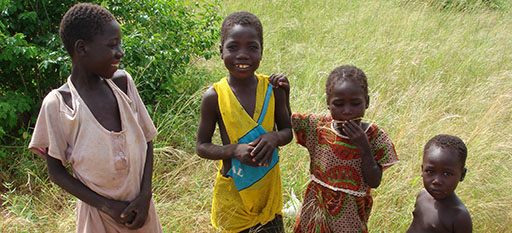
LSHTM-Agrifood Systems
Lead Organization:
London School of Hygiene & Tropical Medicine (LSHTM)
Partner Organizations:
LUANAR
Community of Practice:
Countries:
Malawi
Duration:
11/2019—11/2020
Overview:
Agricultural productivity in Malawi is declining due to complex socioeconomic and biophysical constraints. Maize monocropping has negatively impacted food and nutrition security. With limited food availability and low dietary diversity, levels of malnutrition for young children remain high. There is increasing interest in making agricultural programs and policies more nutrition-sensitive. However, a gap exists in knowledge and resources for scaling up nutrition-sensitive agriculture programs (NSAP) adapted to local contexts and environments. A key challenge in designing agricultural interventions, which include nutrition and environmental goals, is complexity in working across diverse sectors and stakeholders. Different criteria and stakeholder priorities need to be considered in selecting food combinations for production and/or consumption. Decision-making needs to address nutrient gaps in local diets, as well as agricultural productivity, biodiversity, and environmental sustainability. These criteria are prioritized differently by nutrition and agriculture program planners and local community members. Tools to facilitate stakeholder dialogue for NSAP decisions are not available. Diet-modelling tools are available, which systematically diagnose nutrient gaps in local food systems and inform programming decisions taking food availability, cost, and dietary preferences into account. However, they do not take into account local agricultural context and environmental criteria. To address this gap, LSHTM recently developed a tool called Agrifood, based on Multi-Criteria Decision Analysis (MCDA) to have various stakeholders identify tradeoffs in making decisions about nutritious foods to promote for production and/or consumption in NSAP. Criteria in the tool are rapid, simple and flexible to allow understanding and adaptation to different needs and contexts. Transparent and participatory processes now need to be developed to operationalize Agrifood to facilitate negotiation and compromise across stakeholders. The proposed project will support LSHTM researchers to work with LUANAR to develop these.
Grant Aims:
Despite being a largely agro-based economy, Malawi suffers from high rates of food insecurity and poor nutrition. There is a gap in knowledge and tools for nutrition-sensitive agriculture approaches and tailoring options to local contexts. The proposed project aims to strengthen integration of nutrition into agriculture decision-making and contribute to sustainable local food systems to support nutrition in Ntcheu, Kasungu, and Mzimba districts of Malawi. It will develop implementation processes and build local capacity for using the new MCDA tool, Agrifood, to support decisions on improving local food systems and diets while addressing AEI, gender equity, livelihoods, and sustainability issues.
The proposed project will be a valuable addition to ESAf CoP and the wider agricultural development community, adding a nutrition decision tool to the portfolio. Farmer research networks (FRNs) in the area are central to the process, as they have been effective in increasing knowledge, development, and application of AEI innovations in the context of soil health. Operationalization of Agrifood provides an opportunity to widen this to improving local agri-food systems and nutrition.
Outputs and Outcomes:
Intended outputs and outcomes:
- Creation of an operational manual adapted to the Malawi context describing procedures for applying Agrifood to support farmer-led decision-making in the design of NSAP;
- Design of programs to increase the production and/or consumption of nutritious foods so that Malawi organizations can understand tradeoffs from multi-sectoral perspectives, including farmers, which should increase chances of long-term program success;
- Increased understanding and documentation of processes critical to facilitating Agrifood for illuminating cross-sectoral stakeholder perspectives on key tradeoffs;
- More effective and sustainable intervention options designed to increase the production and/or consumption of nutritious foods, taking into account tradeoffs identified by multi-sector stakeholders;
- Improved knowledge, skills, attitudes, and motivation required for FRNs, agriculture extension services ,and nutrition workers;
- Nutritional adequacy of local food systems strengthened through informed decision-making related to integrating nutrition, agriculture, and environment in agricultural extension and health interventions;
- Selection by participants of available nutritious crops and/or livestock options for production or consumption;
- Promotion of interventions for increasing the production and diversification of nutritious crops and/or smallholder livestock available for strengthening local dietary adequacy and agroecological sustainability taken up by partner organizations.